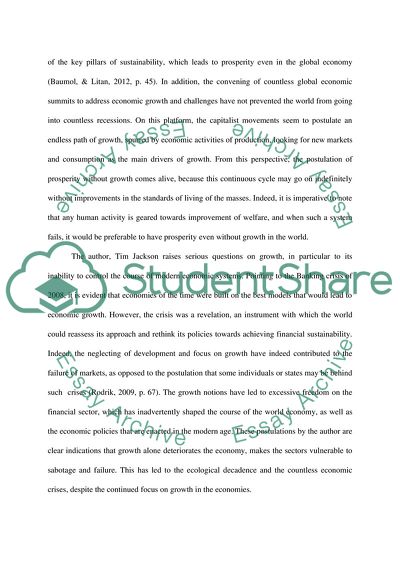Cite this document
(“Prosperity Without Growth Essay Example | Topics and Well Written Essays - 1500 words”, n.d.)
Retrieved from https://studentshare.org/macro-microeconomics/1629661-critically-examine-jacksons-2011-contention-that-prosperity-without-growth-is-not-only-an-alternative-vision-but-also-a-necessity-for-our-world
Retrieved from https://studentshare.org/macro-microeconomics/1629661-critically-examine-jacksons-2011-contention-that-prosperity-without-growth-is-not-only-an-alternative-vision-but-also-a-necessity-for-our-world
(Prosperity Without Growth Essay Example | Topics and Well Written Essays - 1500 Words)
https://studentshare.org/macro-microeconomics/1629661-critically-examine-jacksons-2011-contention-that-prosperity-without-growth-is-not-only-an-alternative-vision-but-also-a-necessity-for-our-world.
https://studentshare.org/macro-microeconomics/1629661-critically-examine-jacksons-2011-contention-that-prosperity-without-growth-is-not-only-an-alternative-vision-but-also-a-necessity-for-our-world.
“Prosperity Without Growth Essay Example | Topics and Well Written Essays - 1500 Words”, n.d. https://studentshare.org/macro-microeconomics/1629661-critically-examine-jacksons-2011-contention-that-prosperity-without-growth-is-not-only-an-alternative-vision-but-also-a-necessity-for-our-world.


